by: IAMT
Living On Your Own And “Bill Time”
Living on your own for the first time can be empowering. It means having independence and all the things that come with it. Some of those things—like not having to share a bathroom—are wonderful. Others—like killing spiders yourself—are not so fun. And leading the pack in the not-so-fun category: bills.
The Dos and Don’ts of Debt Repayment
Consumer debt is an extremely contradictory part of our personal finances: it’s at once common and incredibly personal. According to numerous sources, the majority of US adults owe money in some way, shape or form—and yet what this consumer debt represents can vary drastically from person to person. To some, a debt might signify a major accomplishment or progress toward a large goal. To others, it might be a constant reminder of a time of crisis or hardship. The decisions that lead us to consumer debt can be thoughtful and deliberate, or rushed and misguided. It is perhaps these differences that make it challenging to talk openly about debt for fear of judgment.
by: Banzai
Five Common Cryptocurrency Scams You Should Be Aware Of
With the rise in popularity of cryptocurrencies, the world of digital assets has become a breeding ground for scams and fraudulent activities. While the technology behind cryptocurrencies offers numerous benefits, it's essential to be aware of the potential risks involved, to always be cautious, and to protect your personal information. In this article, we will explore five common cryptocurrency scams that you should be aware of.
by: Banzai
Scholarship Application Time-Savers
Successful scholarship applications take considerable time and effort. Although there’s no shortcut to a quality application, there are steps you can take to make your efforts as rewarding as possible. Tackling your scholarship search with strategy and efficiency can translate into extra applications—and therefore, extra tuition dollars. For best results, incorporate the following tips into your application process as early as possible.
by: IAMT
Buying vs. Renting a Home: Are You Getting the Right Advice?
The average person moves residences about 11 times in their lifetime. That provides a lot of opportunity to confront the following question: is it better to own your home or to rent it? It’s a huge decision that affects your lifestyle as much as it does your finances, and the answer will vary depending on who you ask. There are compelling arguments to be made for both sides and the resulting advice—though well-intentioned—can quickly become confusing and contradictory. So, is paying rent really just a waste of money? Or is it true that you can make more money by renting than by owning a home? Take a closer look at six snippets of common owning-versus-renting advice:
5 Ways to Lower the Cost of Tuition Before Considering a Student Loan
If you’re considering financing your college education with the help of a student loan, the smartest thing you can do for yourself is to only borrow what you truly need. (This advice applies to pretty much all loan products, by the way.) Pursuing post-secondary education should be an exciting time in your life. You’re making decisions and opening up possibilities that will shape your future—a future that is adventurous and fulfilling and that decidedly does not include years and years of crippling debt.



